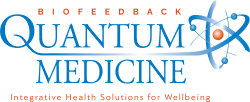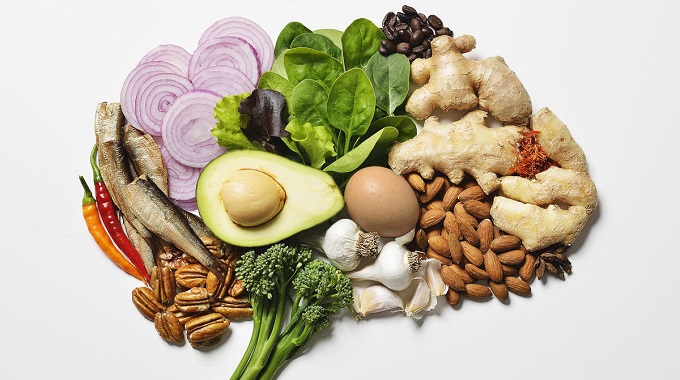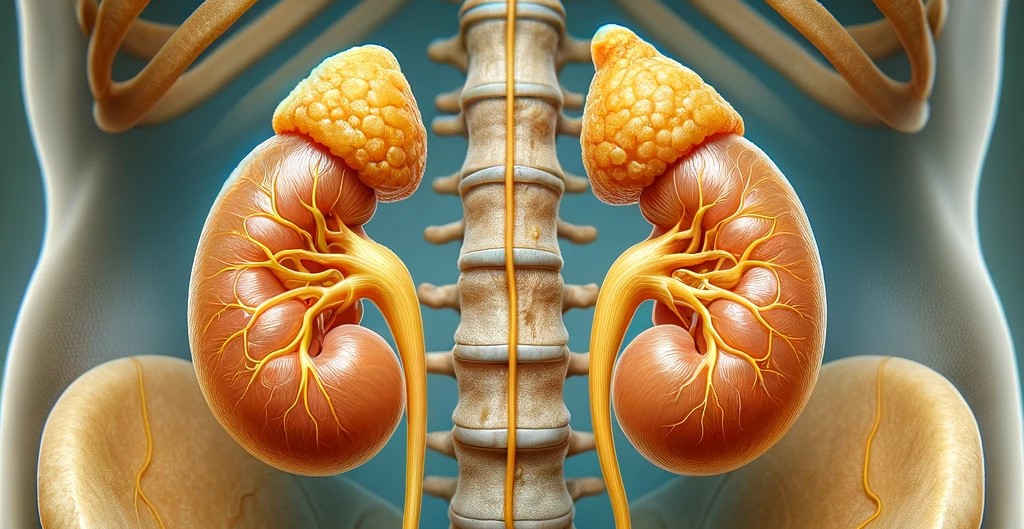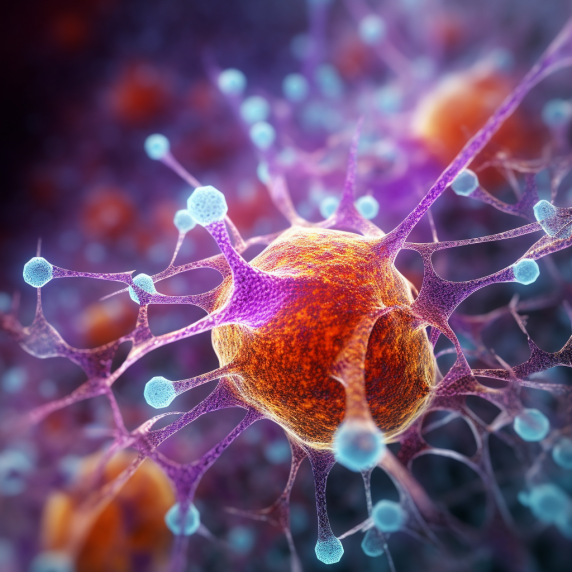The brain is made up of about 100 billion cells, called neurons. Thought, memory, and many brain functions that we do not even consider depend on interactions between cells that occur at the speed of light. To facilitate the transmission of signals between cells, neurotransmitters act as biological bridges. Neurotransmitters, such as serotonin, dopamine, epinephrine, norepinephrine, acetylcholine and endorphins carry messages from one cell to another and affect our mood, thoughts and actions. Some of the nutrients in the foods we eat become part of the neurotransmitters.
Neurotransmitters in the brain are made up of amino acids. The amino acid tryptophan is a key building block of serotonin, the neurotransmitter that relaxes the brain. It is considered the natural sedative of the mind. It is important for sleep, appetite, mood and memory. Tryptophan is found in: eggs, bananas, dairy, chocolate, sunflower seeds, sesame, meat, poultry, nuts.
Dopamine, epinephrine and norepinephrine are made up of the amino acid tyrosine, known as catecholamines, and are the neurotransmitters that stimulate the brain. Dopamine is associated with movement, attention and learning. Tyrosine is found in: yogurt, turkey, seafood, soy, tofu, legumes, tuna.
One key neurotransmitter that keeps brain cells stimulated is acetylcholine, which contains choline and is important for memory. Choline is found in: eggs, liver, soy.
Other important neurotransmitters are endorphins. They are produced in the pituitary gland of the brain, calm us down, give birth to a feeling of pleasure, neutralize high levels of adrenaline, are considered the body's natural painkillers, strengthen the defense and are a shield against cell aging. Endorphins are produced mainly by exercise and generally by physical activity.
Important Nutritional Supplements for optimal brain function.
- The phospholipid Phosphatidylserine is an important structural component of cell membranes. Stimulates energetic and electrical activity throughout the brain.
- Η L-Glutamine energy source for the brain, is converted to glutamic acid, essential for brain function and for GABA, an important neurotransmitter that calms the central nervous system.
- Η Acetyl L-Carnitine - converts fatty acids into metabolic energy, and crosses the boundaries of the brain where acetylcholine synthesis is promoted.
- The calcium helps the brain use tryptophan to make melotonin. Explains why dairy products that contain both tryptophan and calcium are among the top sleep-inducing foods.
- The iodine It is especially important for children - and if they are deficient they may end up with an IQ 10-15 degrees lower than they would otherwise have. In addition to dietary supplements it is found in fish, seafood, seaweed and sea salt.
- DHA (docosahexaenoic acid). DHA is the primary building block of brain tissue. DHA deficiency in the diet translates into a decrease in brain function.
Nutrient deficiencies can affect the brain in many ways. For example, deficiencies in essential fatty acids (Ω3, Ω6, Ω7, Ω9), delay the transmission of nerve impulses. This is because the essential fatty acids make up myelin, which covers the cell axis as the insulating cover covers the electrical wires and speeds up the transmission of electrical signals along the axes.
It is important to understand that a holistic dietary approach enhances mental abilities, helps concentration, vitality and energy, improves memory and reduces stress. It can also work preventively against cancer, heart disease, autoimmunity, diabetes, arthritis, premature aging and obesity.
To make a holistic diet we need to know some factors, such as the right combinations of proteins, good fats, complex carbohydrates, glycemic index, calories, pH of food, vitamins, minerals, essential fatty acids, enzymes, resistance to insulin, and insulin resistance. intestinal-cerebral. Through a holistic approach and Quantum Biofeedback sessions we can get the best results. Holistic Nutrition counseling is aimed at providing holistic suggestions for improving nutrition, reducing toxins, information on the appropriate nutritional supplements, herbs and foods that each body needs -based on medical history of symptoms and microbiological tests- optimal health, ideal weight, a strengthened immune system and better mental and psychological state.




